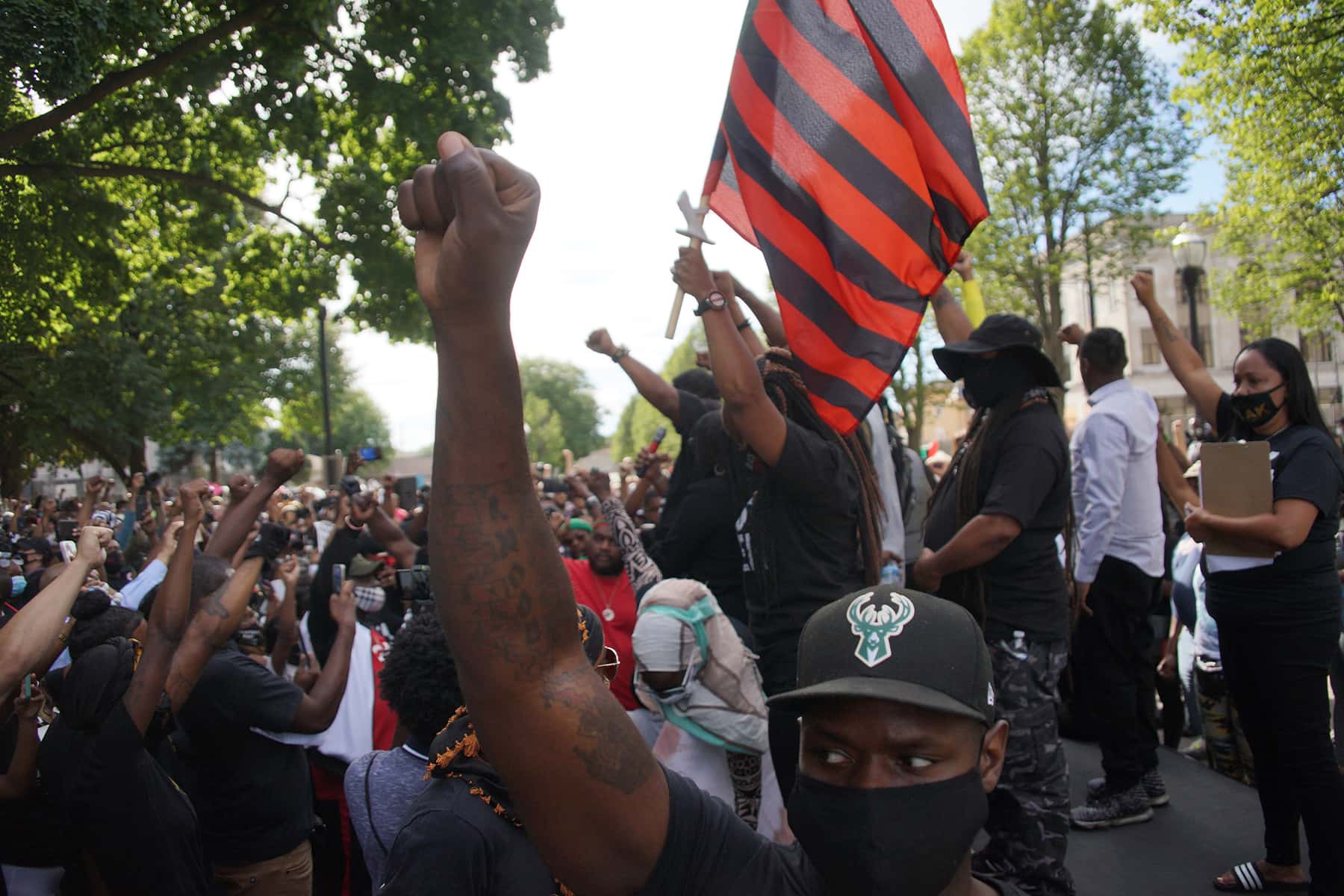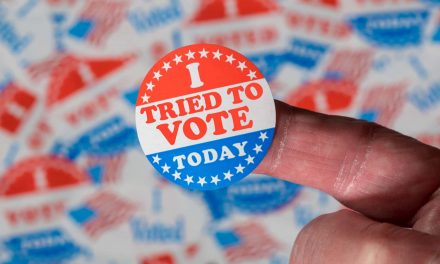
Three months ago, a Kenosha police officer shot my nephew, Jacob Blake, seven times in the back in front of his children. Jacob was rushed to the hospital, where for days he was shackled to his bed, only to find he’d been paralyzed from the waist down. The officer who shot him, Rusten Sheskey, has yet to be charged with a crime and is currently on paid administrative leave.
Days after the shooting, Donald Trump came and went, showing little empathy for our family, and calling for a violent crackdown on protests for racial justice. The press, too, came and went, as the drama of uprising transitioned into the long, slow work of healing and change. But even after the cameras left, after the president ignored our pain and took off in his motorcade, Kenoshans kept organizing.
In close concert with the Blake family, grassroots organizations in Kenosha began turning protest power into electoral power in one of the most competitive swing states in the country. From the start, our goal was to counteract voter suppression and make sure everyone in our community had their voice heard at the ballot box.
On October 20, our family joined hundreds of activists and community members in a peaceful march from Kenosha to Milwaukee, receiving support along the way from luminaries like the former Ohio state senator Nina Turner and the Rev. Jesse Jackson. The march took over 14 hours, ending in Milwaukee’s Red Arrow Park, where Dontre Hamilton was killed by a police officer in 2014. The message of the marchers was simple: south-eastern Wisconsin has seen too much violence at the hands of the police. It’s time for Wisconsinites to vote out the politicians who have allowed, and often encouraged, this violence in our communities.
For many of the activists in Kenosha, including Jacob’s family, this meant voting Trump out of office. In the last two weeks before the election, we took this message door to door in a canvassing sprint across Kenosha, a city where the Joe Biden campaign itself had very little presence on the ground. But for the thousands of low-propensity voters we spoke to one-on-one in the city of Kenosha, Biden’s 20,000 statewide vote margin might have looked a lot smaller.
Mainstream Democrats often invoke “loyalty” as the quality they hope to inspire in their voters. But “loyalty” is a two-way street: party leaders shouldn’t expect it if they can’t deliver for the voters who put them in office. And on this front, particularly with Black voters, Biden is far from perfect. He spearheaded the 1994 crime bill, for instance, which expanded mass incarceration and hurt Black communities across the country.
Kenosha’s community leaders are taking a chance on Biden, believing that this turning point will push him to learn from past mistakes and take a moral stance in this moment of national division. And we are tired of Trump’s hateful racism and the increasingly explicit imprimatur he’s given to violent white supremacists. But make no mistake: now that Biden’s won the election, he owes this country real racial justice reform.
He must start with the most obvious steps: executive orders that address the immediate need for federal remedies to protect Black and Brown citizens from police brutality; appointing a special prosecutor to investigate both criminal and civil rights violations in the Floyd, Taylor, Blake, Cole and Anderson cases. More broadly, Biden must recognize that poverty and racism are pandemics in their own right, each of which has been exacerbated by Covid-19. Beginning to remedy them will require not just an emergency economic stabilization package, but a national moratorium on foreclosures and evictions for the next 12 months, and a prioritization of funding for the communities of color hit hardest by the virus.
These demands are not coming from Kenosha alone, but from all across the country, where the Black Lives Matter movement – the largest social uprising in our nation’s history – has inspired a new generation of voters and activists. So while racial justice leaders may have helped Biden take back the White House, come January 2021, we will be reminding him exactly who got him there.
Justіn Blаkе
Lee Matz
Portions originally published on The Guardian as Joe Biden, Black Lives Matter activists helped you win Wisconsin. Don’t forget us
Help deliver the independent journalism that the world needs, make a contribution of support to The Guardian.














